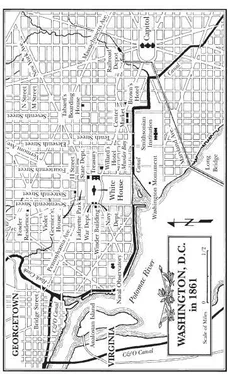John Miller - The First Assassin
Здесь есть возможность читать онлайн «John Miller - The First Assassin» весь текст электронной книги совершенно бесплатно (целиком полную версию без сокращений). В некоторых случаях можно слушать аудио, скачать через торрент в формате fb2 и присутствует краткое содержание. Жанр: Исторический детектив, на английском языке. Описание произведения, (предисловие) а так же отзывы посетителей доступны на портале библиотеки ЛибКат.
- Название:The First Assassin
- Автор:
- Жанр:
- Год:неизвестен
- ISBN:нет данных
- Рейтинг книги:3 / 5. Голосов: 1
-
Избранное:Добавить в избранное
- Отзывы:
-
Ваша оценка:
- 60
- 1
- 2
- 3
- 4
- 5
The First Assassin: краткое содержание, описание и аннотация
Предлагаем к чтению аннотацию, описание, краткое содержание или предисловие (зависит от того, что написал сам автор книги «The First Assassin»). Если вы не нашли необходимую информацию о книге — напишите в комментариях, мы постараемся отыскать её.
The First Assassin — читать онлайн бесплатно полную книгу (весь текст) целиком
Ниже представлен текст книги, разбитый по страницам. Система сохранения места последней прочитанной страницы, позволяет с удобством читать онлайн бесплатно книгу «The First Assassin», без необходимости каждый раз заново искать на чём Вы остановились. Поставьте закладку, и сможете в любой момент перейти на страницу, на которой закончили чтение.
Интервал:
Закладка:
“Mrs. Grenier, you have visitors,” said Polly, in a meek brogue.
Violet already knew. She had been writing a note at her desk when she glanced out the window of her second-floor study, looked across Sixteenth Street to St. John’s Church on the other side, and saw two men walking straight for her front door. She had not recognized either of them.
“They called themselves Jeff and Alex,” continued Polly. She seemed unsure of herself, which was normal except that now she seemed hesitant even by her own standards. “They didn’t give last names, and they said it didn’t matter because you wouldn’t know them by their names but by a phrase. They made me memorize it: ‘Wide is the gate and broad is the way that leadeth to destruction.’” The girl’s face, usually expressionless, showed a flash of distaste.
Violet recognized the words immediately. It surprised her to hear them. She asked Polly to repeat the line. The girl closed her eyes and spoke it again.
“Tell our guests that I will join them presently,” said Violet.
Polly nodded and left. Violet stayed behind and paused before a mirror. She was one of those women who was not beautiful at first glance but became so as a man studied her. She was tall and slim, with olive skin that flushed into color on her face, thick eyebrows crowning brown eyes that somehow sparkled, and just a touch of gray in her black hair, which was parted straight down the middle and drawn back tightly despite a current fashion calling for rings and curls. Her beauty was the kind that comes with maturity, a confident pose of female experience that younger women could only hope to achieve one day. She also had a good figure-one that few women could duplicate even in their youth. At the age of thirty-nine, Violet had never felt better about herself.
There was a time when she would have thought feeling good about herself was impossible. Just six years earlier, she had become a childless widow when her husband died on a business trip to California. The news came to her in a telegram. She had read it in this very room. For months she was despondent. Her husband had left her with enough money to remain comfortable, but also more grief than she thought she could bear.
Slowly but surely, however, Violet overcame her sadness. It had been like recovering from a long convalescence. Yet when it was gone, it was gone for good-and Violet once again threw herself into the Washington political scene as a high-powered hostess whose guests came from the ranks of cabinet members, military officers, and foreign diplomats. When her friend James Buchanan was elected president in 1856, she achieved even greater levels of prominence. An invitation to dine at her home had become a prized mark of social success.
Although Violet had no shortage of suitors, a widowed woman in possession of a good fortune does not necessarily want a husband. Violet enjoyed her newfound prestige and decided that she would rather entertain senators than marry one. She met most of them in drawing rooms and across dinner tables, but these were by no means her only places of congress. They were not even the most important ones.
Violet had discovered a talent for bewitching men. At first she deployed it for her own amusement. Before long, however, she realized that her paramours were willing to share their intimate knowledge of Washington politics-she heard what was said behind the closed doors of committee rooms, which public men were to be trusted under no circumstances, and who aspired to high office but would never get there because of a drinking problem. Sometimes men confided in Violet because they wanted to impress her. Other times they did it because they just wanted to talk and she was willing to listen. Their motives hardly mattered to Violet, who realized that she occupied a unique and privileged position. And she saw it as an opportunity to exploit.
Personal ambition was only a part of her motive, and it was not even the biggest part. Instead, Grenier had become radicalized by the times. Between North and South, there was no question about her own loyalties.
She had grown up in Maryland, about two dozen miles from where she now lived, on a small plantation that grew tobacco and wheat. The entire operation depended on slave labor. As Violet grew up, it had not occurred to her that slavery might be unjust. Quite the contrary, she viewed it as the natural order of things and felt that slaves often were not sufficiently appreciative of the lives they were allowed to live.
This particular sentiment owed much to a family tragedy. When Violet was a girl, her father spent a dreary afternoon at a local tavern. In the evening, it started to rain hard. Violet’s father passed the hours by continuing to drink. Shortly after midnight, the rain stopped and he decided to leave. He was intoxicated and barely able to mount his horse. His manservant, a slave called Jacob who often traveled with him, helped Violet’s father onto his steed. They departed together.
Violet’s father never made it home. Somewhere along the way, he suffered a fatal head injury. Jacob insisted that he had fallen from his horse and struck a rock. The slave thought that perhaps the horse had slipped in the mud, causing its rider to lose his balance. A doctor who arrived on the scene confirmed that the wound came from a blow to the head but speculated that perhaps it had been delivered after the fall-in other words, that the slave had finished off his master. There was a trial, a verdict, and a hanging. Violet was too young to remember the details, such as the fact that Jacob was judged by an all-white jury and could not call character witnesses. Yet she grew up thinking that her father had been murdered by a slave and believing that the sons and daughters of Africa deserved bondage and should be more grateful for it.
As a widow in Washington, she knew any number of figures who supported freeing the slaves. She even liked a few of them. But that was on a personal level, and she despised their opinions. For a time, she kept these views to herself. Debating political or moral issues was not considered proper behavior for a society lady. Yet it became increasingly difficult to keep opinions bottled up, even in settings that were supposed to be filled with conviviality. Abolitionists from the North started refusing to break bread with slaveholders from the South, and vice versa. When the two sides did meet, often the best a hostess could hope to achieve was a frostiness that kept everyone’s manners in check. The dinner party had been an essential feature of life in the capital because it allowed politicians from different parties, regions, and branches of the government to meet outside the halls of formal power, and hostesses like Violet provided an essential service. When the Republican Party nominated Abraham Lincoln for president and the Democrats splintered into hostile factions, however, it broke down completely.
Over the years, Grenier had made a habit of sharing the information she had obtained by her various methods with favored politicians. Most were from the South, but a few, such as Buchanan, were Northerners who were amenable to the South. Sometimes she merely repeated what she had heard verbatim, but she was not above planting false rumors when she thought these would serve a purpose, such as harming the chances of a certain congressman’s winning a prized committee seat. Buchanan once called her “the Lady Macbeth of Washington.” He meant it as a joke; Violet considered it a compliment.
In 1860, as it became apparent that Lincoln would win the election, Violet began telling acquaintances that no matter what happened, she would remain in Washington. She told her most trusted friends that she would be willing to serve as the eyes and ears of those who could not be there with her, either because they felt they had to leave or because they already lived elsewhere. Furthermore, she let them know that she would be glad to participate in plans to undermine the Lincoln administration, whether it meant merely making observations about cabinet deliberations or collecting data on local troop strength-or perhaps even something more extreme. The milk of human kindness was not her way. Lady Macbeth would have understood.
Читать дальшеИнтервал:
Закладка:
Похожие книги на «The First Assassin»
Представляем Вашему вниманию похожие книги на «The First Assassin» списком для выбора. Мы отобрали схожую по названию и смыслу литературу в надежде предоставить читателям больше вариантов отыскать новые, интересные, ещё непрочитанные произведения.
Обсуждение, отзывы о книге «The First Assassin» и просто собственные мнения читателей. Оставьте ваши комментарии, напишите, что Вы думаете о произведении, его смысле или главных героях. Укажите что конкретно понравилось, а что нет, и почему Вы так считаете.












